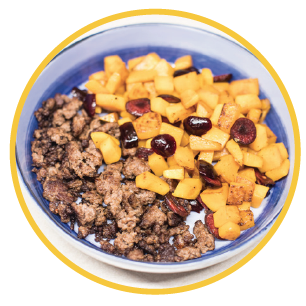
Sheldon’s Corner: Is It Better To Train On An Empty Stomach?
Some of us can down a meal 30 minutes before an intense workout and feel great, but others can’t have a bite within hours of exercising. Meanwhile research and the media bombard us with tips to exercise on an empty stomach or eat only protein before a workout to obtain the best possible results.
So is it worth it to train ourselves to exercise in a fed or fasted state when it doesn’t come naturally? More and more research is showing that there are benefits to both and it may be best to simply do what works well for you.
Exercise in a Fasted State
Exercising on an empty stomach gained attention when research showed that a fasting state encourages the body to rely on fat stores for energy. One small study of active men showed that those who exercised in the morning on an empty stomach burned 20 percent more fat than those who ate breakfast. It’s important to note that these results aren’t always consistent. Other studies have shown that the same amount of fat is burned during a workout regardless of whether you are in a fed or fasted state.
One potential benefit of exercising on an empty stomach is its influence on insulin. Insulin is a hormone released after a meal that assists in getting blood glucose to cells to be used for energy. Research has shown that exercising in the fasted state improves insulin sensitivity, which means the glucose can get into the cells more easily instead of being stored as fat and increasing risk for chronic disease.
Exercise in a Fed State
Plenty of research has also explored what happens when we supply the body with pre-workout fuel. A recent study to be published in the Journal of Science and Medicine in Sport showed that eating a high-protein meal before a 30 minute, moderate-intensity workout can lead to greater calorie burn in some healthy young women, especially when compared to exercising in a fasting state.
A study published in the Journal of Nutrition showed that you can still burn fat if you choose to eat before your workout. Researchers found that sedentary females burned more fat during exercise when they consumed a low glycemic meal prior to the activity versus a high glycemic meal. The low glycemic meal group also reported feeling fuller later in the day.
Another benefit of grabbing a snack is that when we are well fueled, we can exercise at a higher intensity and for longer periods. If you force yourself to exercise hungry, exercise performance can suffer and fewer total calories may be burned due to a less intense workout.
Deciding What Is Right for You
The take away from these pros and cons is that there is no strong reason to push yourself to do something that is unnatural or that turns exercise into an unpleasant experience. If you can’t stomach food before exercise, you feel good during the session and you refuel after the workout, you likely aren’t doing any harm. There may even be some added benefit to your fasting exercise.
If a snack gives you the energy to push through a tough workout or you find you feel week or dizzy without it, don’t skip it in order to gain some magical benefit. You are still burning fat and calories, and improving your fitness. It’s more important to finish your workout and enjoy it rather than to push yourself on an empty stomach and feel miserable.
Original Article written by: Lori Rice @ Fitstar